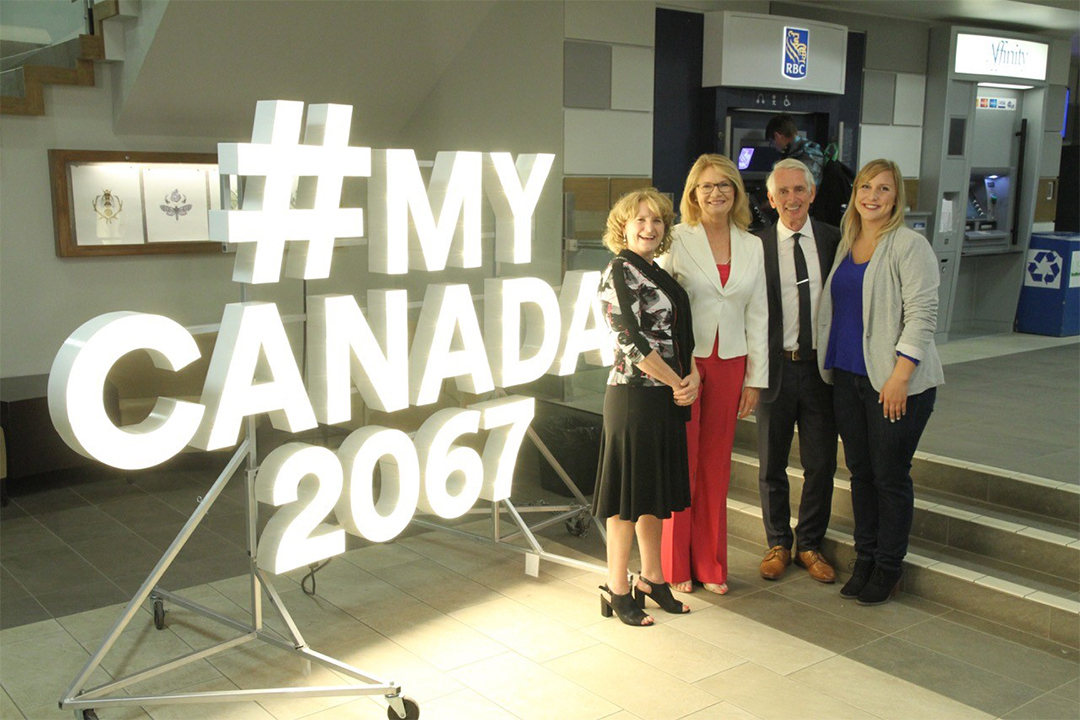
WCVM research receives NSERC funds
U of S faculty, graduate students and postdoctoral fellows were awarded $10.7 million by the Natural Sciences and Engineering Research Council (NSERC) for fundamental research projects.
By U of S CommunicationsSeveral researchers from the Western College of Veterinary Medicine (WCVM) were included in the announcement, with more than $1.6 million announced for scientists at the college alone.
The announcement was made Sept. 13 at the U of S by Kate Young, parliamentary secretary to Science Minister Kirsty Duncan.
“This major investment advances research in fundamental, high-quality science that is vital to building Canada’s economic future and training the next generation of leaders,” says Karen Chad, U of S vice-president research.
NSERC awards cover research as diverse as exploring the effectiveness of using beavers to restore aquatic ecosystems to using agricultural byproducts and forestry residues as feedstock to produce bioenergy.
One example of these innovative research projects is the work of veterinary microbiologist Janet Hill for research on the trillions of micro-organisms that inhabit every surface of humans and animals, and play a critical role in the health of their hosts. Hill is head of the WCVM’s Department of Veterinary Microbiology and will receive $300,000 for this research project.
“Our research team is applying conventional and molecular microbiology techniques to detecting and monitoring these microbial communities,” says Hill. “Our discoveries will contribute to a general understanding of how and why microbiomes change and how we might learn to manipulate those processes to improve human, animal and environmental health, and to advance biotechnology.”
Among the 27 students awarded scholarships and fellowships is Vanessa Cowan, a PhD student in toxicology who is working with Drs. Barry Blakley and Jaswant Singh in the WCVM’s Department of Veterinary Biomedical Sciences. With their guidance, she’s working to determine the safe threshold in livestock feed of a plant fungus that infects most grasses and cereal grains in Canada.
The fungus produces a toxic compound called ergot alkaloids, which can reduce sperm and milk production in cattle, and lead to the loss of hoofs and the tips of tails and ears. Cowan estimates the economic impact in Canada of such toxic compounds to be in the millions of dollars.
“My research aims to protect animal health and productivity, influence regulations on livestock feed safety, and educate producers on the issue of ergot poisoning,” she says.
Cowan’s funding is part of the Alexander Graham Bell Canada Graduate Scholarships-Doctoral Program, worth $35,000 per year for three years.
The following WCVM researchers also received funding as part of this announcement:
- Maud Ferrari, associate professor, Department of Veterinary Biomedical Sciences. Ferrari’s funding will allow her to study the sensory and cognitive ecology of risk assessment in a changing world. She will receive $120,000 over three years through the Discover Accelerator Supplements Program. Ferrari was also successful in the NSERC research grants competition and will receive $240,000 over five years for the same project.
- John Giesy, professor in the Department of Veterinary Biomedical Sciences and the U of S Canada Research Chair, Environmental Toxicology. Giesy’s work focuses on novel natural and synthetic brominated and iodinated compounds in the environment. He will receive $195,000 over five years.
- Daniel MacPhee, associate professor, Department of Veterinary Biomedical Sciences. MacPhee will study the expression and function of stress proteins in uterine smooth muscle during pregnancy. He will receive $140,000 over five years.
- Jaswant Singh, professor, Department of Veterinary Biomedical Sciences. Singh’s work focuses on the mechanisms affecting the competence of oocytes – or cells in an ovary that form an egg – in the bovine model, specifically studying the effect of follicular and maternal aging. He will receive $160,000 over five years.
- Suraj Unniappan, professor, Department of Veterinary Biomedical Sciences. Unniappan’s project will evaluate the hormonal integration of feeding, metabolism, growth and reproduction in fish. His lab will receive $160,000 over five years.
- Lynn Weber, professor, Department of Veterinary Biomedical Sciences. This funding will allow Weber to continue her research on the effect of contaminants on the cardiorespiratory and metabolic functions of fish in a field setting. She will receive $117,114 for one year.
Visit the NSERC site to see a full list of NSERC grant recipients.
